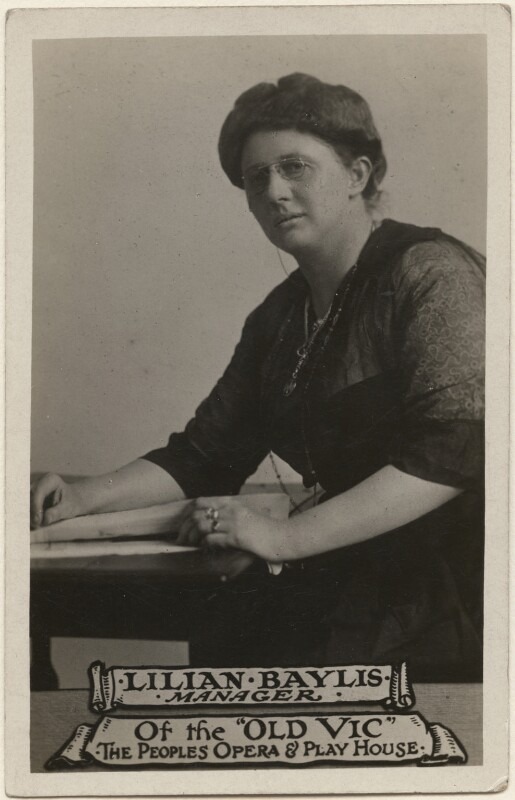people » Lilian Baylis
Lilian Baylis (1874-1937). Theatrical producer
Lilian Baylis was born in London in 1874 to Newton Baylis and Elizabeth Cons, who were a professional singer and pianist. The eldest of six children, she was surrounded by music as a child and took violin lessons at the Royal Academy of Music. In 1891 Lilian and her family emigrated to South Africa, to perform together as The Gypsy Revellers, Lilian playing violin and mandolin. On falling ill, she was sent back to London, and was taken up and given a job by her aunt, Emma Cons, the manager of The Royal Victoria Hall and Coffee Tavern – in other words, the Old Vic.
Baylis took on more and more roles at the Old Vic, becoming acting manager in 1898 and manager in 1912 following the death of Emma Cons. She began expanding its theatrical activities, with Shakespeare as a focus, and introduced opera, her particular passion, with performances in English. In 1925 she began a campaign to re-open the derelict Sadler’s Wells Theatre. Successful, in 1931 it opened again with a performance of Twelfth Night, the cast including John Gielgud and Ralph Richardson. The acquisition of Sadler’s Wells allowed Baylis to expand her dance activities, another passion, which had begun in a small way at the Old Vic in 1926 when she engaged Ninette de Valois to work there improving the standard of dance in plays and opera. De Valois had in fact written to Baylis, suggesting the establishment of a ballet company at the Old Vic, and in 1928 it gave its first full performance. From 1931, de Valois’ fledgling company became known as the Vic-Wells Ballet, with a permanent home in Sadler’s Wells, together with a school, both of which Baylis had promised de Valois as early as 1926. From 1935, de Valois’ company, which now included such stars as Margot Fonteyn and Robert Helpmann, along with Frederick Ashton as choreographer and Constant Lambert as music director, concentrated itself at Sadler’s Wells. It was later known as the Sadler’s Wells Ballet, eventually becoming The Royal Ballet in 1956. Meanwhile, an almost complete roll call of the leading actors of the era performed at the Old Vic, where, in 1963, the National Theatre was established.
Lilian Baylis, famously religious and teetotal, died in 1937 in London. In 1929 she had been made a Companion of Honour for services to the nation. The accolade was well deserved. Without her pioneering work there would have been no National Theatre, no Royal Ballet, and no English National Opera, which stemmed from the opera company she had started at the Old Vic.

